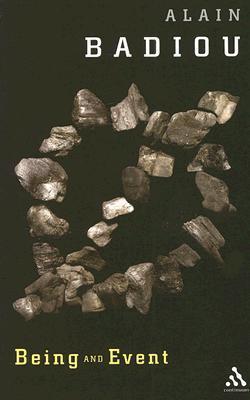What do you think?
Rate this book


526 pages, Paperback
First published January 1, 1988
I have to say that philosophy does not generate any truths either, however painful this admission may be. At best, philosophy is conditioned by the faithful procedures of its times (340).
A philosophy worthy of the name--the name which began with Paramenides--is in any case antinomical to the serivce of goods, inasmuch as it endeavors to be at the service of truths; one can always endeavor to be at the service of art, science and of politics. That it is capable of being at the service of love is more doubtful (on the other hand, art, a mixed procedure, supports truths of love). In any case, there is no commercial philosophy (341).